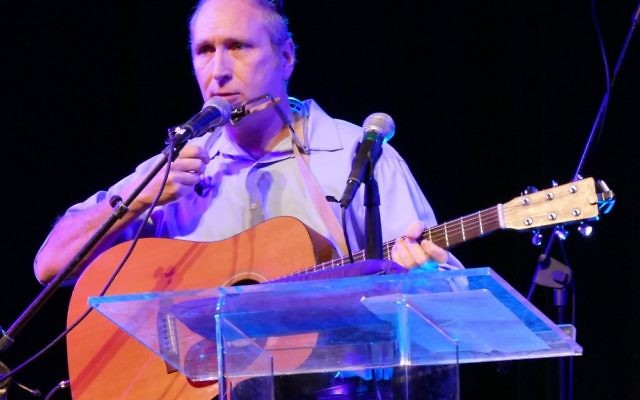The Kehilla: The Shofar’s Breath
Guest Column by Rabbi Karmi Ingber
Rosh Hashanah means “the head of the year,” and so we are now at the beginning.
However, to think of time as if it were a straight line would be inaccurate. Time in Jewish thought is more like a spiral. We move through time and touch the same points every year as if in a circular motion, but because we are traveling forward in our journey, each year getting closer to our destination, we can understand time as points along a spiral.
There is a past and a future, but every year we have the opportunity to revisit the essential stations along the same circle, allowing us to develop and complete ourselves. In fact, the Hebrew word shana, which is translated as year, actually means “to repeat a cycle” (as in the word shanaim, which means two or another time around) because every yearly cycle contains all the challenges we need to grow.
This is the deeper meaning of the famous Chanukah blessing She’Asa Nissim, in which we thank G-d for the miracles He has done for us in those days (bayamim hahem) but in these times (bazman hazeh). Any miracle that happened to our ancestors, whether it was Chanukah, Purim or any other holiday, happened in days past but was specific to this time.
Every Passover when we re-experience freedom, it is specifically in springtime, when we move from the confinement and limitation of winter to the expansion and freedom of spring. We light the Chanukah candles specifically in the darkest season every year to enlighten the night. Our festivals are part of the fabric of time itself.
So what happened on Rosh Hashanah that we are now commemorating? What point in time are we revisiting?
Rosh Hashanah is the creation of humanity. It was at this time that G-d breathed life into Adam and Eve, the progenitors of all humankind. And so when the cycle of the breath of life is finished, G-d assesses what we have done with the breath of life that He gave us.
Have we taken our gifts and used them to make this a better world? Do we need more, less or different tools in this coming year’s breath of life?
We were created for a purpose: to prefect ourselves and the world, thereby earn the greatest pleasure of connecting to the Ultimate Source. On Rosh Hashanah we have returned to that moment of creation, and so G-d evaluates our progress in order to breathe life into us once more.
The Kabbalists teach us that this breath is the sound of the shofar. It is G-d breathing life into the creation as He did on the first Rosh Hashanah.
You see, the shofar is an atonal instrument. There are no notes or articulations. It is rather the root of all sound; it is the breath that precedes speech.
The human being was given a divine soul because G-d breathed life into him, and, as the mystics teach, one who breathes into something breathes from his own self. And so we were given a soul that is a spark of divinity (so to speak).
But the cycle of that breath has now been completed. We need another breath from the Source of Existence to continue to exist. And so on the High Holidays, G-d (so to speak) blows the shofar and blows the primal breath of life into us for another cycle, another year.
Yet you may ask, aren’t we the ones that blow the shofar? Yes, our shofar call is the broken cry of the soul that wants to reconnect with the Source. G-d has given us the keys to fix the world through our actions, and the more we want it, the more we yearn to reconnect through the root of our breath, G-d answers us in kind and blows the breath of life back into us.
May we merit to experience the breath of life that will unite us, inspire us and invigorate us to connect to the Source of all life.
Rabbi Karmi Ingber is the spiritual leader of The Kehilla in Sandy Springs.





comments